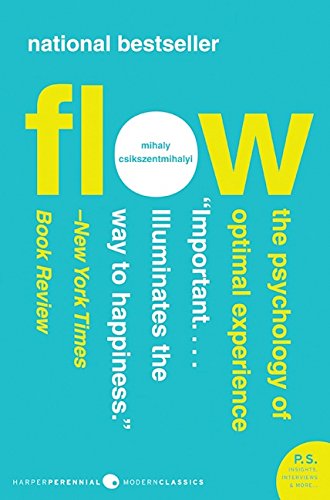
Featured Blog | This community-written post highlights the best of what the game industry has to offer. Read more like it on the Game Developer Blogs or learn how to Submit Your Own Blog Post
GDC 2017: How video game composers can use music to build suspense
Video game composer Winifred Phillips presents extra research & scholarship gathered for her GDC 2017 talk: Homefront to God of War: Using Music to Build Suspense. This info (not included in the talk) is useful for designers wishing to enhance suspense.


By Winifred Phillips | Contact | Follow
The Game Developers Conference is coming up soon! Last year I presented a talk on music for mobile games (pictured above), and I'm pleased that this year I'll be presenting the talk, "Homefront' to 'God of War': Using Music to Build Suspense" (Wednesday, March 1st at 11am in room 3006 West Hall, Moscone Center, San Francisco). In my talk I'll be focusing on practical applications of techniques for video game composers and game audio folks, using my own experiences as concrete examples for exploration. Along the way, I'll be discussing some very compelling scholarly research on the relationship between suspense, gameplay and musical expression. In preparing my GDC 2017 presentation I did a lot of reading and studying about the nature of suspense in video games, the importance of suspense in gameplay design, and the role that video game music plays in regulating and elevating suspense. There will be lots of ground to cover in my presentation! That being said, the targeted focus of my presentation precluded me from incorporating some very interesting extra research into the importance of suspense in a more general sense... why human beings need suspense, and what purpose it serves in our lives. I also couldn't find the space to include everything I'd encountered regarding suspense as an element in the gaming experience. It occurred to me that some of this could be very useful to us in our work as game makers, so I'd like to share some of these extra ideas in this article.
First, let's start with the basics.
What is suspense?
 If we are to understand what suspense is, we first have to acknowledge the role of two other emotions: hope and fear. They are diametrically opposed, but essential to the existence of a suspenseful state. In his final treatise, The Passions of the Soul, French philosopher René Descartes wrote, "the mere fact of thinking that a good may be acquired or an evil avoided is sufficient to produce the desire for this to come to pass. But when, over and above this, we consider whether our desire is likely to be satisfied or not,
If we are to understand what suspense is, we first have to acknowledge the role of two other emotions: hope and fear. They are diametrically opposed, but essential to the existence of a suspenseful state. In his final treatise, The Passions of the Soul, French philosopher René Descartes wrote, "the mere fact of thinking that a good may be acquired or an evil avoided is sufficient to produce the desire for this to come to pass. But when, over and above this, we consider whether our desire is likely to be satisfied or not,  the idea that it is likely arouses hope in us, and the idea that it is unlikely arouses fear."
the idea that it is likely arouses hope in us, and the idea that it is unlikely arouses fear."
In a paper written for the journal Text Technology, researchers Aaron Smuts and Jonathan Frome connect the emotions of hope and fear to the concept of suspense. "People feel suspense when they fear a bad outcome, hope for a good outcome, and are uncertain about which outcome will come to pass," writes Smuts and Frome. "In real life, we might feel suspense when walking through an unfamiliar, reputedly dangerous neighborhood at night. We fear that we might be mugged, hope that we will be safe, and are uncertain which will occur."
Things get a bit more interesting as the writers connect these ideas to the structure of video game design. "We have found that the games most effective at creating suspense often put players in situations where they must wait and see what happens, much like a film spectator," they write. "This passive position allows the player an opportunity to speculate about possible outcomes and reflect on the consequences of those outcomes."
GDC 2017 Presentation Preview: In my upcoming GDC talk, I'll be exploring how to create a suspenseful atmosphere in moments of quiet when events are seemingly suspended, yet slowly heading towards a dreadful outcome. Using examples of my music from Homefront: The Revolution (pictured), I'll break down the techniques that I used to thicken the tension while players hold their breath and wait for the other shoe to drop. |
So, for the moment let's accept that suspense requires both hope and fear, along with the opportunity to mentally encompass the awesome impact of both emotions and contemplate the possibilities of the situation that inspired them. Now, armed with this viewpoint of what suspense is, let's ask ourselves another basic question: why is suspense important?
Suspense and surprise
In the film industry, suspense is a great tool for keeping an audience engaged and emotionally invested in the outcome of a story. Certainly, video games can also benefit from the motivating power of suspense to keep players riveted to the action. But the role of suspense can go beyond this. In a research study published in the Journal of Political Economy, Jeffrey Ely from Northwestern University along with Alexander Frankel and Emir Kamenica of the University of Chicago drew some original and unexpected conclusions about the role of suspense in human society.
 As an example, the researchers observed that in order for a democratic political system to be effective, voters must be informed of the issues in contention during any popular vote. However, individual voters may feel conflicted and uninspired because of a sense of their relative unimportance -- after all, what kind of change can a single vote bring about? Yet, despite this danger of voter ambivalence, many citizens still engage in the political process. "Many voters do in fact follow political news and watch political debates, thus becoming an informed electorate," writes Ely, Frankel and Kamenica. "A potential explanation is that the political process unfolds in a way that generates enjoyable suspense and surprise." The study goes on to advise the use of suspense-style techniques in the dissemination of important information, or to add urgency and motivation to tasks that might otherwise seem bland and un-involving.
As an example, the researchers observed that in order for a democratic political system to be effective, voters must be informed of the issues in contention during any popular vote. However, individual voters may feel conflicted and uninspired because of a sense of their relative unimportance -- after all, what kind of change can a single vote bring about? Yet, despite this danger of voter ambivalence, many citizens still engage in the political process. "Many voters do in fact follow political news and watch political debates, thus becoming an informed electorate," writes Ely, Frankel and Kamenica. "A potential explanation is that the political process unfolds in a way that generates enjoyable suspense and surprise." The study goes on to advise the use of suspense-style techniques in the dissemination of important information, or to add urgency and motivation to tasks that might otherwise seem bland and un-involving.
 In that spirit, an educational course of study was prepared by the Belfast Education and Library Board, the National Science Learning Centre, and the Northern Ireland STEM organization Learn Differently Ltd. Tailored specifically for science, technology, engineering and mathematics teachers, the course showed educators how to "explore a wide range of emotional engagement techniques designed to foster suspense and surprise in the classroom context. Triggering these emotional responses can impact positively on attention, enjoyment, motivation, student-teacher relationship and on cognitive processes such as memory and understanding."
In that spirit, an educational course of study was prepared by the Belfast Education and Library Board, the National Science Learning Centre, and the Northern Ireland STEM organization Learn Differently Ltd. Tailored specifically for science, technology, engineering and mathematics teachers, the course showed educators how to "explore a wide range of emotional engagement techniques designed to foster suspense and surprise in the classroom context. Triggering these emotional responses can impact positively on attention, enjoyment, motivation, student-teacher relationship and on cognitive processes such as memory and understanding."
So, we've talked about the powerful and pervasive effects that suspense can exert, both within entertainment media and in society at large. However, as game developers, our ideas about suspense will naturally focus on its functionality within game systems and structures. With this in mind, let's now turn our attention to some specific correlations between suspense and video gaming.
Uncertainty in game design
One of the most important concepts in game design is Flow. It's a famous idea in the field of psychology, and its influence has extended to many other fields as well. I discussed the relationship between video games and Flow in chapter 3 of my book (A Composer's Guide to Game Music). Coined by psychology researcher Mihály Csíkszentmihályi, Flow is an altered state of consciousness in which "people become so involved in what they are doing that the activity becomes spontaneous, almost automatic; they stop being aware of themselves as separate from the actions they are performing." As an expert researcher, Csíkszentmihályi has been studying Flow and its manifestations in various human activities since the 1970s. He wrote the seminal book on the subject, Flow: The Psychology of Optimal Experience (pictured left).
Coined by psychology researcher Mihály Csíkszentmihályi, Flow is an altered state of consciousness in which "people become so involved in what they are doing that the activity becomes spontaneous, almost automatic; they stop being aware of themselves as separate from the actions they are performing." As an expert researcher, Csíkszentmihályi has been studying Flow and its manifestations in various human activities since the 1970s. He wrote the seminal book on the subject, Flow: The Psychology of Optimal Experience (pictured left).
We're interested in Csíkszentmihályi's work on Flow because it greatly informs his recent experimental study on the nature of suspense, entitled "Enjoying the possibility of defeat: Outcome uncertainty, suspense, and intrinsic motivation." Co-written for the journal Motivation and Emotion with fellow researchers Abuhamdeh and Jalal, the research article describes an experiment that measured the enjoyment level of gamers while playing video games with varying degrees of challenge. One game was rigged so that players would win easily, while the other had been manipulated so that the challenge was much greater but that study participants would still win (by a much slimmer margin). After playing the two games, study participants were told that there was a little extra time left, and would they like to play one of the games again? The answer to this question revealed an apparent contradiction between the results predicted by Flow theory and some of the motivating influences of suspense. The conundrum plays out like this:
After playing the two games, study participants were told that there was a little extra time left, and would they like to play one of the games again? The answer to this question revealed an apparent contradiction between the results predicted by Flow theory and some of the motivating influences of suspense. The conundrum plays out like this:
When we reach a state of optimal Flow, we are functioning at a skill level that equals the demands of the task, and as a result we emerge with a sense of self-confidence in our own competency. This feeling, according to Flow theory, is a potent motivating force, luring us to return to the same activity in order to again experience these emotions. This sounds great as a reliable inducement for gamers to prefer games that accentuate their feelings of competence, right? As it turns out, this assumption is wrong.
"The most enjoyable games, and the ones that participants chose to play again, were not those that maximized perceived competence, but those with high outcome uncertainty," the researchers observe. "Participants chose to play games higher in suspense over games which provided them with higher perceptions of competence, suggesting the motive for competence may be trumped by the enjoyment of suspense in some situations."
GDC 2017 Presentation Preview: In my GDC 2017 talk, I'll be discussing the music I composed for God of War (pictured), with specific attention paid to the techniques I used to foster a sense of dread. With a pervasive and consistent atmosphere of dread, the player is exposed to an elevated state of tension that enables a stronger subsequent reaction to surprising gameplay moments. My talk will explore methods to generate such an atmosphere in games, and ways these techniques have been used in other media. |
So, now that we've taken a closer look at the purpose that suspense can serve in game design, how can we deliver a suspenseful experience for gamers?
Mechanics of suspense
"Suspense and tension are hard feelings for games to generate," writes Chris Pruett, CEO of the Robot Invader game development studio. In an article for Game Dev Daily, Pruett describes these emotions as "the apex of engagement: the player is so enthralled with the experience that it causes him physical stress."
Pruett urges designers to "focus the player on narrative context rather than underlying game systems. We want the player to be thinking as if he is his avatar rather than a third party solving a puzzle." In order to accomplish this, Pruett suggests that designers "move the player’s mode of thinking away from “systemic” problem solving (thinking about stats, min/maxing, design patterns, or even tactical strategy) to “contextual” problem solving (“who sent this note?” or “how do I get out of here?”)."
In order to accomplish this, Pruett suggests that designers "move the player’s mode of thinking away from “systemic” problem solving (thinking about stats, min/maxing, design patterns, or even tactical strategy) to “contextual” problem solving (“who sent this note?” or “how do I get out of here?”)."
The importance of contextual thinking to suspense in games is echoed by YouTube essayist Mason Miller, creator of the [game array] series of videos on game design. In his video essay, "Resident Evil and the Art of Suspense," Miller explores how the design of 2002's Resident Evil Remake forces players to think less about stats and mechanics, and more about in-character choices and circumstances that promote a greater sense of immersion.
"Uncertainty is at the core of suspense in video games," Miller observes. "Despite whatever perception we may have in our heads, there is very little certainty in Resident Evil... Areas we thought would remain safe for travel suddenly become dangerous, short cuts become inaccessible, and new monsters spawn in vacant hallways. These changes prevent any iron-clad one-size-fits-all strategy from taking place, and instead welcomes contextual in-the-moment thinking. And contextual thinking like that is a necessity for the kind of immersion we require to generate suspense."
 In his video essay, Miller discusses the Mental Model (an important concept in the field of psychology), which Miller applies to the world of gaming and describes as "the process in which players instinctively build up collections of what they believe to be true about a game and its systems in their heads." By challenging this collection of perceived truths and this internalized map of the game world that players create for themselves, a game can surprise its players, leading to greater suspense. "By invalidating the very mental models players depend on, the game creates an incredibly tense experience from beginning to end." Miller's video essay is fascinating - you can see the entire video here:
In his video essay, Miller discusses the Mental Model (an important concept in the field of psychology), which Miller applies to the world of gaming and describes as "the process in which players instinctively build up collections of what they believe to be true about a game and its systems in their heads." By challenging this collection of perceived truths and this internalized map of the game world that players create for themselves, a game can surprise its players, leading to greater suspense. "By invalidating the very mental models players depend on, the game creates an incredibly tense experience from beginning to end." Miller's video essay is fascinating - you can see the entire video here:
Conclusion
In this article I've shared some of the additional research I'd encountered that didn't make the cut for my GDC 2017 presentation, 'Homefront' to 'God of War': Using Music to Build Suspense (Wednesday, March 1st at 11am in room 3006 West Hall, Moscone Center). The presentation I give at GDC will include lots of practical and concrete techniques and strategies for game music composers and audio folks looking to ratchet up suspense for their players. That being said, the more general research in this article can also provide helpful insight, and I hope you've found it stimulating! I've included all the information about my upcoming talk below. Please feel free to share your thoughts and insights in the comments section at the end of this article!

'Homefront' to 'God of War': Using Music to Build Suspense
This talk presents ideas for creating a high-tension game score. Composer Winifred Phillips will share tips from some of her projects (pictured left). Phillips will discuss tension-enhancing audio techniques from the films of Martin Scorsese and David Lynch. Phillips will also discuss techniques that composers can adopt from the world of sound design, from startling bursts of noise to strategic moments of silence. Dissonances, drones and unnerving sonic effects all contribute, and each technique will be examined via aural examples from Phillips' projects, including 'Homefront: The Revolution' and the original 'God of War'. The discussion will also include an examination of the uses of suspenseful music in virtual reality, and Phillips will share examples of her music from the recently released 'Dragon Front' VR game. Phillips' talk will offer techniques for composers and audio directors looking to enhance player suspense. Takeaway Through examples from several successful game titles, Phillips will provide an analysis of music composition strategies that effectively elevate tension. The talk will include concrete examples and practical advice that audience members can apply to their own games. Intended Audience This session will provide composers and audio directors with strategies for designing suspenseful game scores. Includes an overview of the role of music in elevating tension (useful general knowledge for designers). This talk will be approachable for all levels (advanced composers may better appreciate the specific composition techniques discussed). Speaker Biography Wnifred Phillips is an award-winning game composer. Some of her latest video game credits include the triple-A first person shooter Homefront: The Revolution and the virtual reality game Dragon Front. Other credits include five of the biggest and best franchises in gaming: Assassin's Creed, Total War, God of War, LittleBigPlanet, and The Sims. Phillips has received an Interactive Achievement Award / D.I.C.E. Award from the Academy of Interactive Arts and Sciences, three Hollywood Music in Media Awards, six Game Audio Network Guild Awards, five Global Music Awards, an IGN Best Score Award, a GameSpot Best Music Award, a GameZone Score of the Year Award, a GameFocus Award, and three Gracie Awards from the Alliance of Women in Media. In addition, Phillips has been recognized as an expert in music for VR by the Women in Virtual Reality organization. She has released fifteen albums. Her soundtrack album for the Legend of the Guardians video game was the first video game soundtrack album released by WaterTower Music, one of the top labels for film music soundtracks. Phillips is the author of the award-winning bestselling book, A Composer's Guide to Game Music, published by the Massachusetts Institute of Technology Press. |
 Winifred Phillips is an award-winning video game music composer whose most recent project is the triple-A first person shooter Homefront: The Revolution. Her credits include five of the most famous and popular franchises in gaming: Assassin’s Creed, LittleBigPlanet, Total War, God of War, and The Sims. She is the author of the award-winning bestseller A COMPOSER'S GUIDE TO GAME MUSIC, published by the MIT Press. As a VR game music expert, she writes frequently on the future of music in virtual reality games. Follow her on Twitter @winphillips.
Winifred Phillips is an award-winning video game music composer whose most recent project is the triple-A first person shooter Homefront: The Revolution. Her credits include five of the most famous and popular franchises in gaming: Assassin’s Creed, LittleBigPlanet, Total War, God of War, and The Sims. She is the author of the award-winning bestseller A COMPOSER'S GUIDE TO GAME MUSIC, published by the MIT Press. As a VR game music expert, she writes frequently on the future of music in virtual reality games. Follow her on Twitter @winphillips.
Read more about:
Featured BlogsAbout the Author(s)
You May Also Like







.jpeg?width=700&auto=webp&quality=80&disable=upscale)








